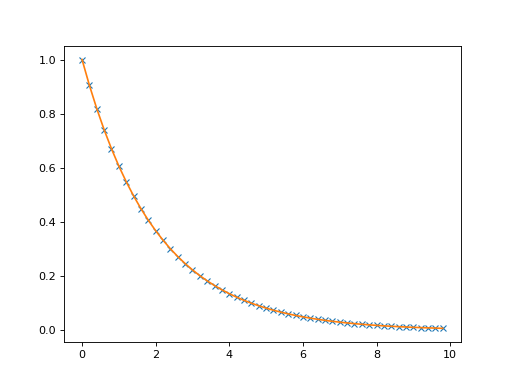function custom_ode¶
- deeptime.data.custom_ode(dim: int, rhs: Callable, h: float, n_steps: int)¶
This function allows the definition of custom ordinary differential equations (ODEs) of the form
\[\mathrm{d}X_t = F(X_t) \mathrm{d}t,\]where the right-hand side \(F\) should map an
dim-dimensional array-like object to andim-dimensional array-like object.(
Source code,png,hires.png,pdf)
- Parameters:
dim (int, positive and less or equal to 5) – The dimension of the SDE’s state vector \(X_t\). Must be less or equal to 5.
rhs (Callable) – The right-hand side function \(F(X_t)\). It must map a dim-dimensional array like object to a dim-dimensional array or list.
h (float) – Step size for the Runge-Kutta integrator.
n_steps (int) – Number of integration steps per evaluation / recording of the state.
- Returns:
system – The system.
- Return type:
Examples
First, some imports.
>>> import numpy as np >>> import deeptime as dt
We can define the right-hand side to model an exponential decay
>>> def rhs(x): ... return [-.5 * x[0]]
and obtain the system
>>> system = dt.data.custom_ode(dim=1, rhs=rhs, h=1e-3, n_steps=20)
where
n_stepsis the number of (Runge-Kutta 45) integration steps per evaluation andhthe step-size. With the system, one can generate trajectories>>> traj = system.trajectory(x0=[[1.]], length=50, seed=45) >>> assert traj.shape == (50, 1)
as well as propagate sample points by
n_steps:>>> propagated_samples = system(np.random.uniform(size=(100, 1))) >>> assert propagated_samples.shape == (100 ,1)
